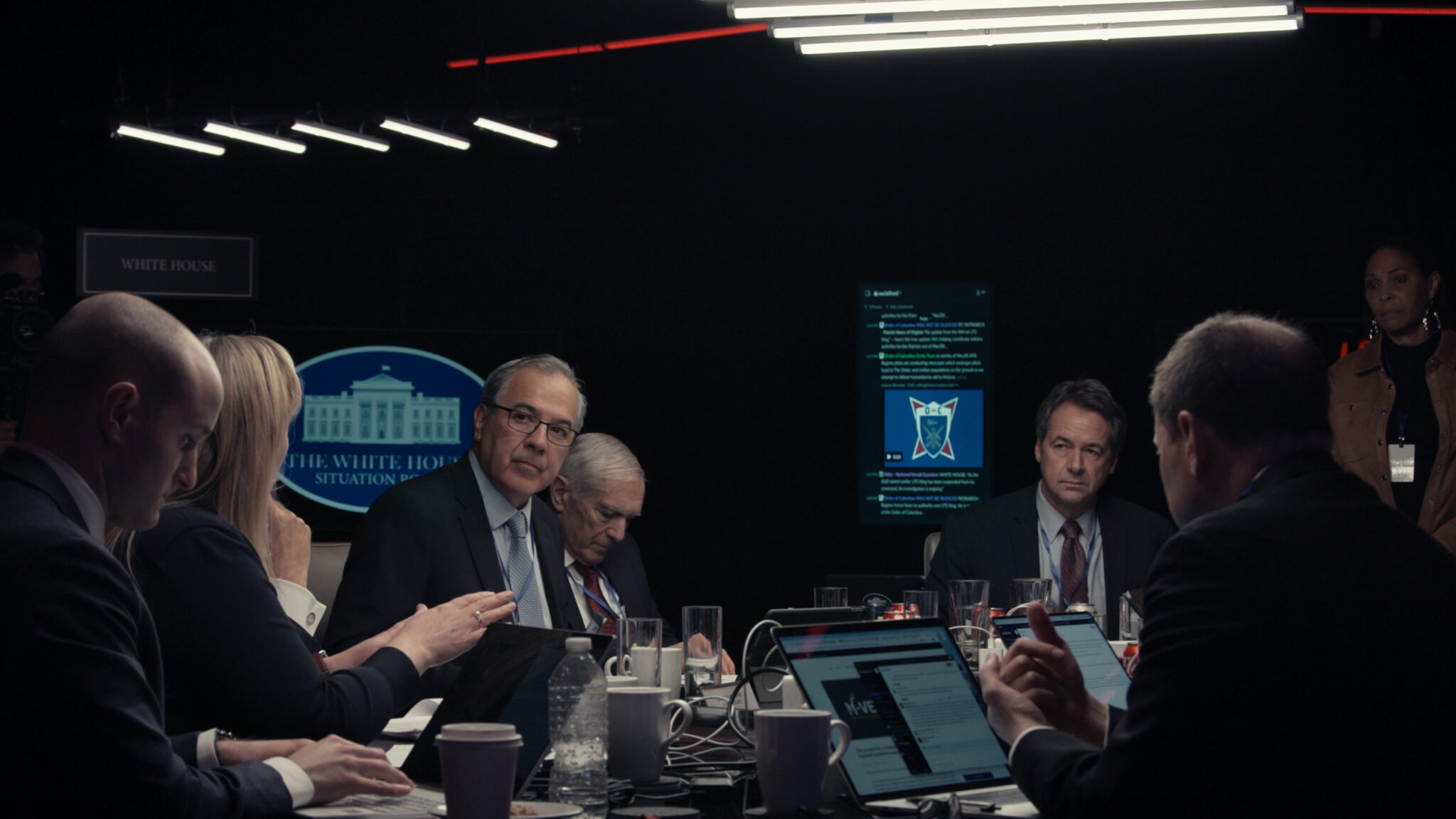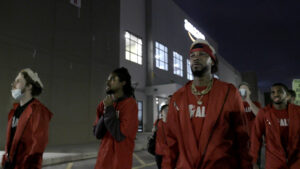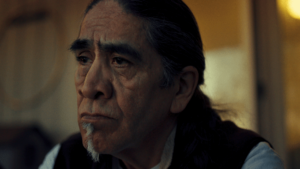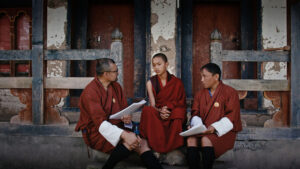By Lucy Spicer
One of the most exciting things about the Sundance Film Festival is having a front-row seat for the bright future of independent filmmaking. While we can learn a lot about the filmmakers from the 2024 Sundance Film Festival through the art that these storytellers share with us, there’s always more we can learn about them as people. This year, we decided to get to the bottom of those artistic wells with our ongoing series: Give Me the Backstory!
Filmmakers Tony Gerber and Jesse Moss each have a decadeslong history with Sundance, but the excitement of taking a project to the Festival has never worn off. “There is nothing to compare to the experience of a Sundance premiere,” says Gerber. “It will never get old and I hope to have a few more in my lifetime!” Gerber first came to the Festival in 1997 with his short A Small Taste of Heaven, and he’s been back several times as both a participant and an audience member. Moss’ first encounter with the Festival was in 1999 with On the Ropes, for which he served as associate producer and sound recordist. Moss would go on to act as a creative advisor for Sundance Institute artist programs in addition to premiering more films — like the award-winning Boys State — at the Festival. Gerber and Moss first teamed up in the 2000s to co-direct the Sundance lab and grant–supported Full Battle Rattle, and the latest product of their partnership, War Game, premiered at the 2024 Sundance Film Festival. “I can’t overstate the valuable role Sundance has played in my artistic development,” says Moss. “There is no better festival in the world to premiere a film.”
War Game was part of the Festival’s Special Screenings section, and it’s clear that the unique experience of making the film was just as special as the audience’s first viewing. Gerber and Moss’ documentary captures a six-hour exercise — conducted by the nonpartisan Vet Voice Foundation — where a room of real-life U.S. defense, intelligence, and policymakers play out a scenario in which another insurrection takes place following the results of a presidential election. Keeping the events of January 6, 2021, in mind, the organizers of the exercise heightened the stakes: This simulated coup would include support from rogue active-duty members of the U.S. military. “The day of production, January 6, 2023, was like the Super Bowl,” says Gerber. “It was terrifying and thrilling like a live broadcast.”
Read on to learn more about the documentary and its filmmakers, including the biggest challenges involved in making the film and why Gerber and Moss believe War Game is essential viewing today.
What was the biggest inspiration behind this film?
Tony Gerber: The biggest inspiration for War Game was for me a film that Jesse Moss and I made together in 2008 called Full Battle Rattle, which told the story of the U.S. Army’s training initiative in the Mojave Desert, where pre-deployment battalions encounter role players in replicas of Iraqi villages. What we discovered in making that film was the beautiful tension between the real and the fake that exists only in live theater. Somehow this is difficult to render in film, which is, in many ways, a literal medium. This tension between the real and the fake creates opportunities to generate meaning. It’s a tension born of the fact that audiences know the play isn’t real but are still moved on a deeply human level by it. The Greeks called it catharsis. Films in which there is performance have the opportunity to hold the fake and the real in the same frame. In the theater it’s about what is inside the proscenium arch and what lies outside of it or backstage. War Game gave us the opportunity to continue to explore this beautiful tension.
Jesse Moss: I have always been interested in role play in documentary, in the tension between reality and artifice, between the public face and the private self. The foundation of this film is the partnership Tony and I forged and the world we explored in Full Battle Rattle 15 years ago, which contained, as Tony described it, a beautiful tension that revealed a hidden truth: the utter futility and madness of the war in Iraq, an intractable conflict that the Army thought it could master by constructing a vast scale model simulation of the battlefield and the players.
The second inspiration for me is the experience we all share as Americans who lived through the disorienting trauma of January 6, 2021, and its aftermath. It was a moment in which the curtain fell away (to borrow a theatrical metaphor), revealing the fragility of our democracy. As I try to make sense of that moment and our collective future, I was drawn to this unique story as a means to process those feelings.
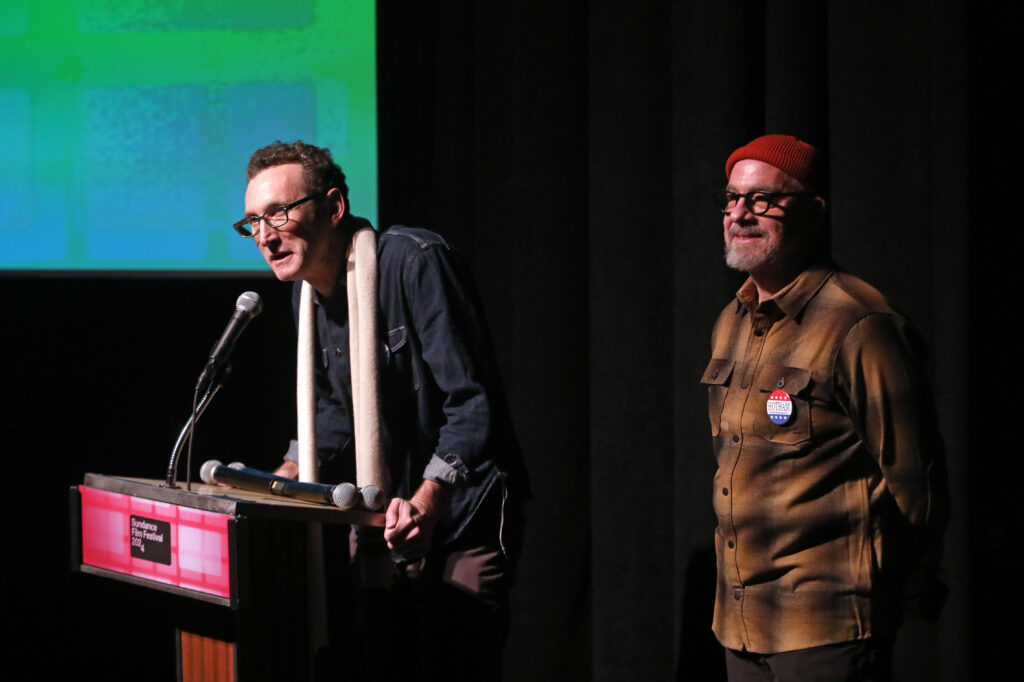
Describe who you want this film to reach.
Gerber: Every voting-age American and audiences in any nation of the world living on “the edge of democracy” (to quote Petra Costa).
Moss: When I make a film, I try not to think too much about the audience. I set my inner compass and try to stay true to it. That being said, I want the film to reach the broadest possible audience.
Why does this story need to be told now?
Gerber: The 2024 election is critical to the future of our children and of American democracy. Period. Full stop.
Moss: We are running out of time. The fractures in our politics and culture are widening. There are few spaces left in American life where people of different political views can find common cause. The war game we filmed was one of them.
What was a big challenge you faced while making this film?
Gerber: Our biggest challenge was to tease out the inherent drama of six cameras times six hours of material (kudos to editor Jeff Gilbert) to tell a clear story with stakes that the audience could follow and invest in. A lot of the dialogue in the situation room was very inside baseball. How to make the experience of the film not just food for the head, but to make it human and emotional?
Moss: I’ve never directed live television, so watching, making sense of, and responding to six camera feeds simultaneously was a totally new challenge. I’m glad my co-director, Tony, had some experience with this. It’s an art form and a learned skill! Beyond production, the major creative challenge was really the orchestration in the edit of the “front story,” of the game itself, and the “backstory” of our game organizers. These personal stories are fascinating and deeply moving and give a kind of emotional framework and personal stakes to the exercise.
Films are lasting artistic legacies; what do you want yours to say?
Gerber: In the end, it is my hope that our film plays as more than a political wake-up call (which it no doubt is), that it also resonates as a valentine, a love letter to what is beautiful and most precious about our country.
Moss: I hope the film is an honest and powerful reflection of this moment, when we find ourselves perched on the precipice, staring into the abyss, and we summoned the courage to “foresee the unforeseeable” and turn feelings of helplessness, frustration, and trauma into collective action.
Tell us why and how you got into filmmaking.
Gerber: My interest in storytelling began in the theater. As a writer, I soon realized that all the plays I was writing were trying to be movies. I had the magical opportunity in my 20s to make films for an experimental, downtown theater company called Mabou Mines. This led to an opportunity to create original films featured in Jonathan Larson’s musical Rent. After working for a year on movie sets as an art department carpenter, I decided to go to graduate school for film.
Moss: Documentary filmmaking is my spiritual practice. It’s how I make sense of and engage with the world and confront the big questions I have about war, politics, and religion, but usually through sharply focused, character-driven stories. I love meeting people and listening and watching. And making art from real life. Once I found my way to documentary, there was nothing else.
If you weren’t a filmmaker, what would you be doing?
Gerber: I’d be a photographer.
Moss: I would write about history. And maybe teach it, too.
What is something that all filmmakers should keep in mind in order to become better cinematic storytellers?
Gerber: As an experiment, turn off the sound and watch your film silent. If all of your storytelling is reliant on dialogue or narration, you aren’t taking full advantage of our medium.
Moss: I think documentary directors should shoot their films, at least in the early stages of their careers. It’s a very unconscious way of working, almost improvisational. We can be overwhelmed by the rational constraints of our practice, and finding a way to shed those constraints is a valuable way to work and to grow.
What’s your favorite film that has come from the Sundance Institute or Festival?
Gerber: American Splendor. I saw the premiere at the Library Center Theatre.
Moss: Reservoir Dogs. I saw it in college, in Berkeley, but it was a thunderclap.




